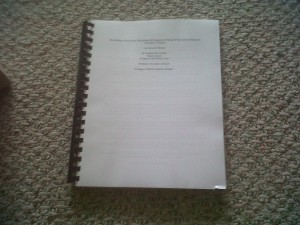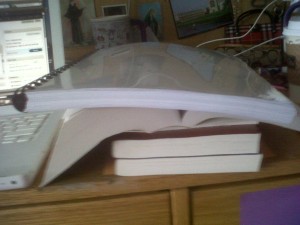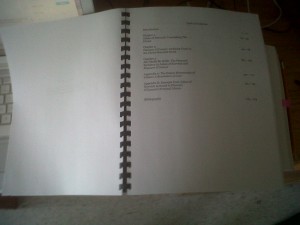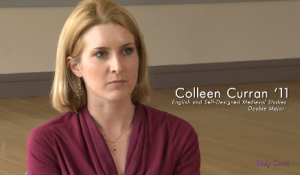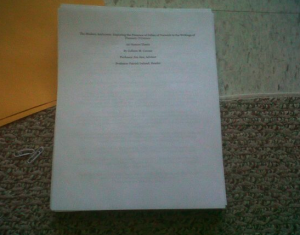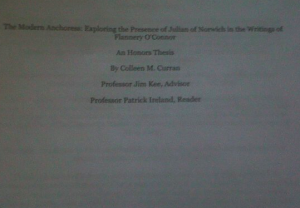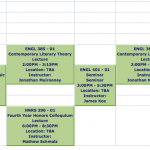Raise your hand if my posts about paleography lost you. Raise your hand if you have no idea what a medieval manuscript looks like.
Well, do I have good news for you! For my final project in my Chant as Popular Music class, I’m making a catalog of all the Gregorian chant manuscripts located in the Worcester area. The local colleges and universities have been so helpful in this research. I just spent the afternoon at Assumption College, where I was able to work with Fr. Donat Lamothe. Assumption has several flyleaves of Gregorian chant manuscripts. So…this is what I do:
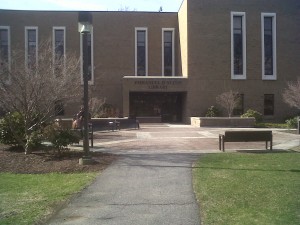
Welcome to the Emmanuel d’Alzon Library at Assumption College!
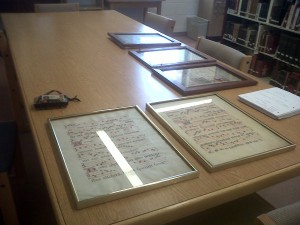
Assumption College has several flyleaves of chant manuscripts in its archives. Now, since I’m still a non-specialist, I can’t handle the manuscripts. Instead, they have to remain in the frames. Even if I could take them out of the frames, I would have to wear gloves to prevent any oils on my hands destroying the already delicate sheets. Three of the leaves were framed in such a way that I could see both sides (recto and verso), but I could only see the recto side of the other two leaves.
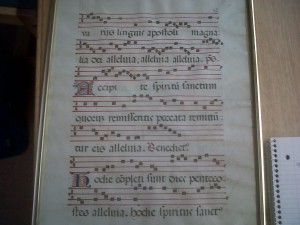
This is an antiphon for the Feast of Pentecost. This manuscript is from the 1400’s, and I’m still trying to identify the specific hand. It’s definitely on parchment, and this manuscript was probably intended for monk use only since it’s not that elaborate.
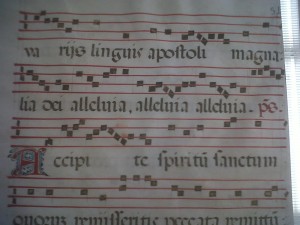
Here’s a close up. What I do now is I transcribe the hand and then I’ll translate it. The line with the fancy “A” reads: “Accipite spiritu sanctum,” which translates to “Receive the Holy Spirit.” Oh, and those squares are neumes, which is a precursor to modern musical notation.
Let’s look at another one:
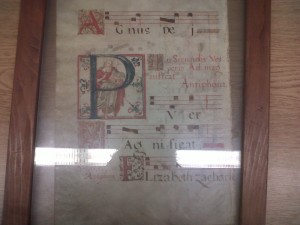
This manuscript is much more elaborate than the first one. This manuscript is printed on vellum, for starters (yes, that’s animal skin), which was much more expensive than parchment. This one is also Renaissance, and I’m thinking that it’s probably English. I have to look at it a bit more closely before I can determine that. What’s really interesting about this manuscript (and the other two that are identical to it) is that it just gives the incipits (or, the first line of the chants) and not the actual melody or lyrics, as the other one did. The people using this text would have known the chant melody and lyrics by heart. This one specifically details the Christmas Mass. How can you tell? Look at the big fancy “P.” The letters after it are “uer.” This is the first word of the ultimate Christmas chant, “Puer Natus Est” – A boy is born.
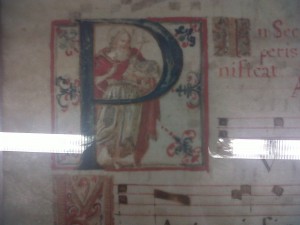
Here’s a close up of that P. Pretty incredible, isn’t it?
Here’s another manuscript written in the same hand:

This one is the incipits for the vespers of the Feast of the Assumption.
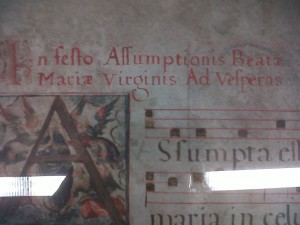
Luckily, the title tells us that. That’s quite rare, usually.
But let’s take a closer look at that “A”:
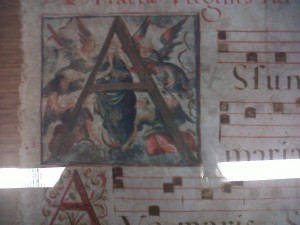
Isn’t it gorgeous? And, if you couldn’t tell from the Latin that these chants are intended for the Assumption, then you can definitely tell from the illumination of the letter A. This is where my true interest in paleography lies – the connection between word and image. That’s another entry for another time, though.
There are more photos of my adventure at Assumption today, but I think I’ll stop where I am now. Welcome to the scary world of a future medievalist!


